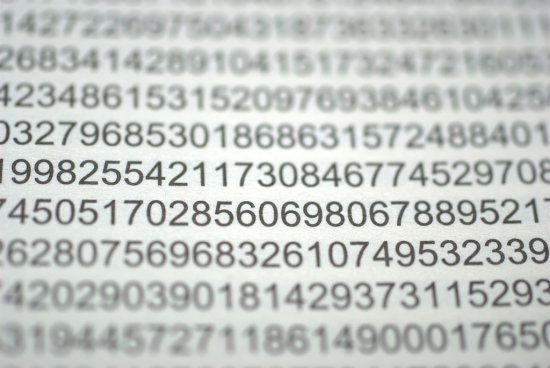There’s a New Largest-Known Prime Number, and It’s 17 Million Digits Long
 Quick! What’s the largest prime number you can think of? Is it millions of digits long? If it isn’t then you’re nowhere near the new largest-known prime number. Euclid proved centuries ago that there is an infinite number of primes, but no one’s ever found a formula to find them, so the process of seeking them out in numbers so large is a tedious one. So tedious that it’s taken four years to beat the previous largest-known prime.
Quick! What’s the largest prime number you can think of? Is it millions of digits long? If it isn’t then you’re nowhere near the new largest-known prime number. Euclid proved centuries ago that there is an infinite number of primes, but no one’s ever found a formula to find them, so the process of seeking them out in numbers so large is a tedious one. So tedious that it’s taken four years to beat the previous largest-known prime.
The previous largest-known prime was 243,112,609 – 1, which when written out is a little under 13 million digits long, but 257,885,161 – 1 just crushed it, coming in at 17 million digits long. 257,885,161 was discovered by Curtis Cooper at the University of Central Missouri and his discovery was part of the Great Internet Mersenne Prime Search (GIMPS).
Mersenne was a monk, who in 1644 came up with what he believed to be a formula that would find prime numbers. He said 2p-1 with p being itself a prime number would result in a larger prime. It doesn’t work with every number, but it gives a starting point for finding large primes. In fact, all 10 of the largest-known prime numbers are Mersenne primes discovered by GIMPS. Although it isn’t perfect, there’s clearly something to Mersenne’s formula.
The GIMPS project is run by volunteers who use computers to test Mersenne prime candidates, and it rewards its volunteers who discover new primes. Cooper is going to receive a prize of $3,000 for his work, but that’s nothing compared to the $150,000 prize being offered by the Electronic Frontier Foundation for the discovery of 100 million digit prime. They also have a $250,000 prize for a prime of one billion digits.
(via New Scientist, image via Koen Vereeken)
- The Watson supercomputer probably knows a lot of prime numbers
- Code.org thinks programming should be just as important as math in schools
- There is a mathematically correct way to decorate Christmas trees
Have a tip we should know? [email protected]